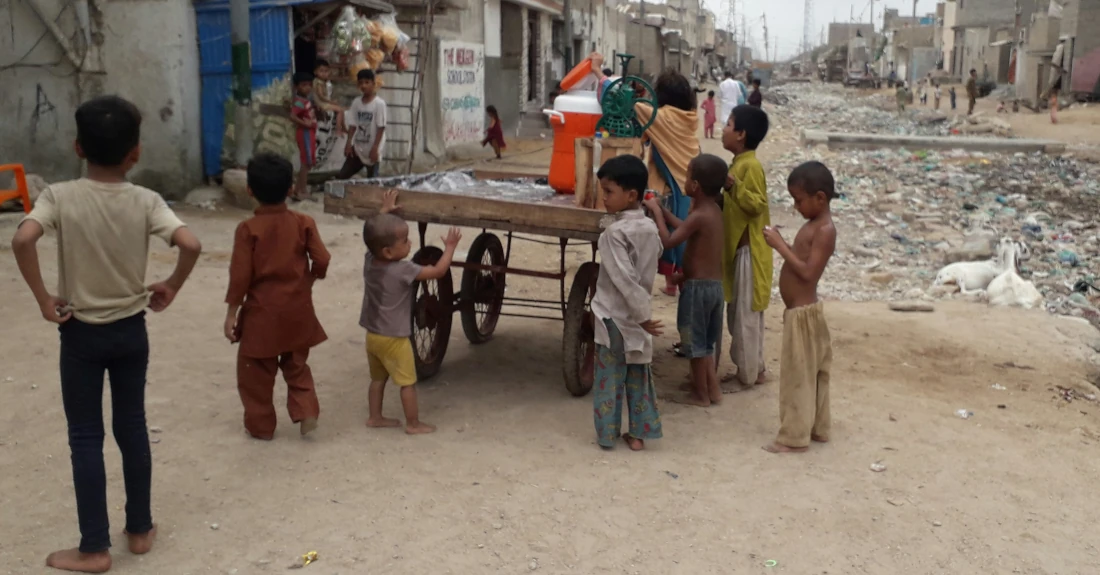You Can't Have the Cream Without the Meat
2025-Apr-01 • Trilety Wade

“You can’t have the cream without the meat.” The woman-on-her-way-home knew this wasn’t true, but it was the expression verbally repeated by the brainwashed. Not quite so vague as to be idiomatic, yet not quite so clear as to be a maxim. This motto was even visually repeated in a conspicuous inscription on every piece of fabric and every inch of flesh. Factories existed with the sole purpose of embroidering the eight-word slogan on every piece of corporate clothing. But the tattoo artists had died out from the stimulation-starvation of boredom that accompanied the fatal repetition of unimaginative ink as they mechanically abraded the exact same sentence in the exact same block font in the exact same large size and in the exact same blend of red. You couldn’t just display it; you had to display it the same.
“You can’t have the cream without the meat,” the man without a head said. He did have a head, and a functional but lazy brain. But in these parts, and in these times, she saw everyone as a moral decapitee. His beard was as thin as the fields that cozied up to the road for a bit of drink from the sewage-filled ditches fed by the dense metropolis upstream. This was as close to rain as the ground could get because people no longer lived on water but had adapted instead to guzzle the salt of the sea and the liquid of the rich. His face was scarred. Maybe from acne. Or maybe from stones thrown at him as a baby because he was already so ugly. His beard couldn’t cover the expanse of scarred skin, which wasn’t so much pitted like the moon she’d never been to, but more caved like the potholed streets that littered the city. But this was the country, or what was left of it.
Campo en el campo.
Vivo en el campo.
Muero en el campo.
Campo de campo.
The man with a head and a beard had a companion with a head and a baby face. Her walk home was obstructed by them both because their path had also been blocked. A roadkill doe, fresh with gut milk and warm blood, stopped the men in their tracks. They removed two hooves each as toys for the few remaining domesticated dogs and then splayed her open further for draining. The lymphatic fluid of her stomach, rich with white blood cells and fat, flowed into the red fluid of her arteries, to mix up an opaline pool of pink beneath her rump. This was the scene the woman-on-her-way-home came upon that wrenched her gut and choked her throat.
The gravel road the four of them shared had the cold-blooded quality of a snake, where it took on the temperature around it. Today the rock was hot. But the road’s alignment was straight, not serpentine with a curved spine in the sun, but rigid like a rectilinear locomoting python dead-set on prey.
The one with the smooth face sipped the flushed cream from his cupped palms and stared at the woman-on-her-way-home’s breasts as he mumbled, “You can’t have the cream without the meat.” A threat of forced sex in a society led by rapists, appointed by rapists, voted in by connoisseurs of rape. The grandmothers of this generation stitched warnings on tea towels during the resistance as a way to disseminate the truth concealed by a wipe of the face.
We are told we are to be defended.
They will guard our conception.
But they only guard and defend what they own.
Now we are the property of the protectors.
Never the protected.
The woman-on-her-way-home's defensive hits fell weightless with the intangibility of a dream, not because she was dreaming, but because their weakness cancelled out her strength. Or maybe it was more because of the orange utility knife at her throat. Was it the orange of rust or the orange of Home Depot? She couldn’t tell, because her eyes were shut.
Another newly gutted doe remembering her mother's words about how writing letters to representatives made a person feel worse, not better, because the only correspondence that mattered must not be written in blood, but on the green paper that bore the face of their long-ago elected king. But there was no money left because the monarchy had fled to space and people now paid in the currency of bones.
Trilety Wade
Trilety Wade writes. The “body” is a running theme of her work. She writes essays, short fiction, and poetry. Rules are rarely followed tho she doesn't shun them, because sometimes the confines of guidelines are cozy.
A weird and wonderful piece exploring a dark theme for dark times, presenting reality as fiction, a reality that may be a bit skewed, but not too far off.